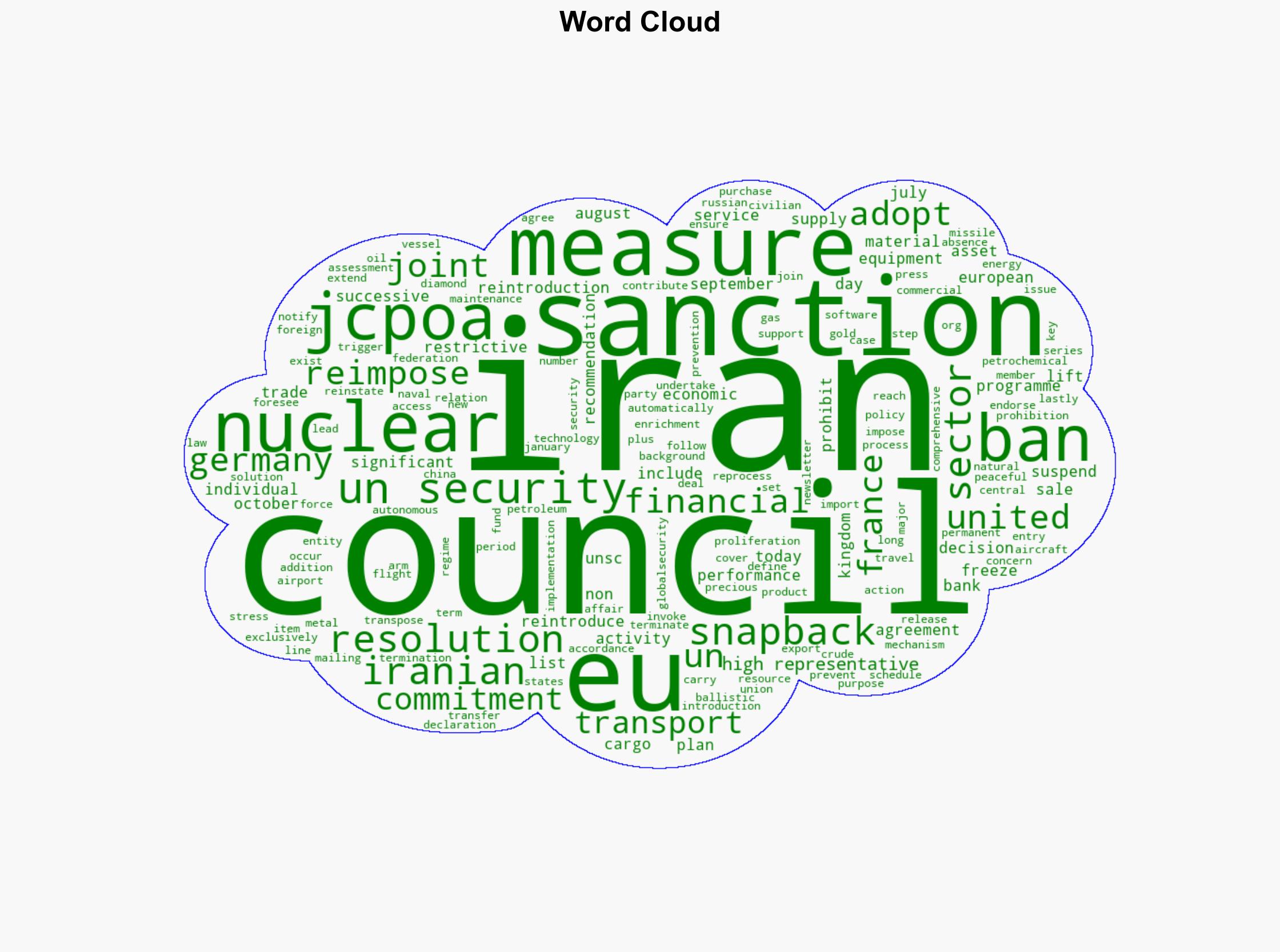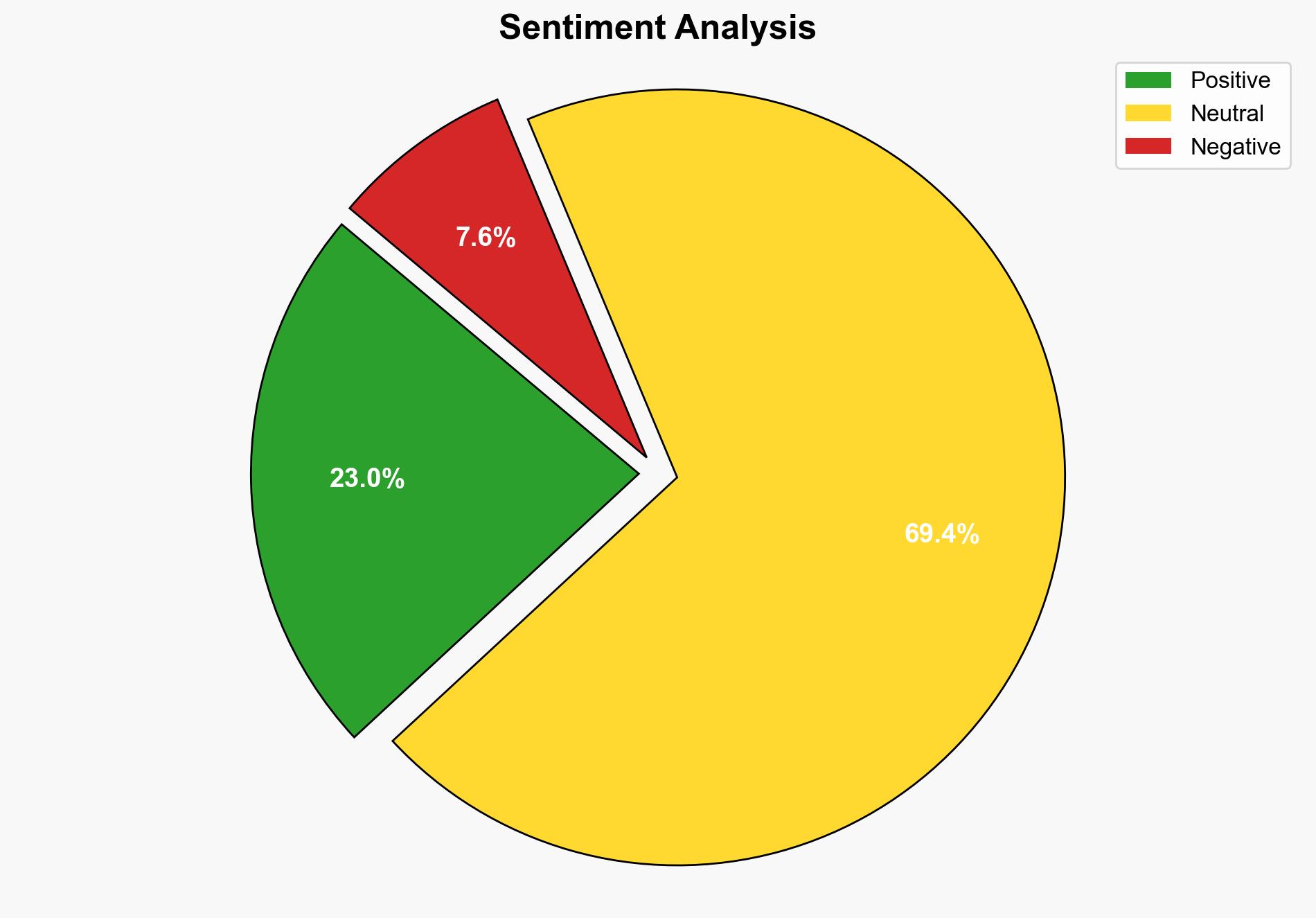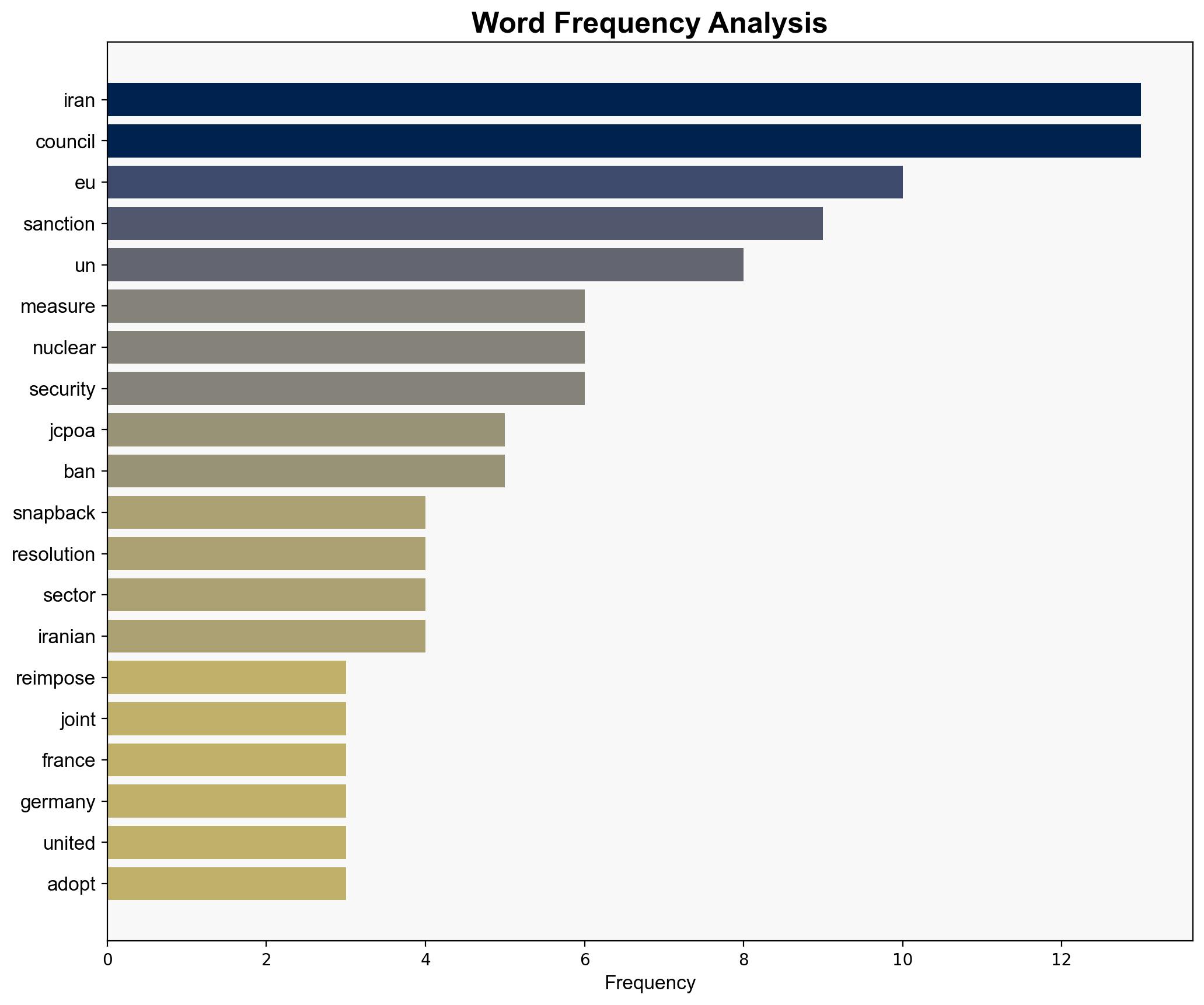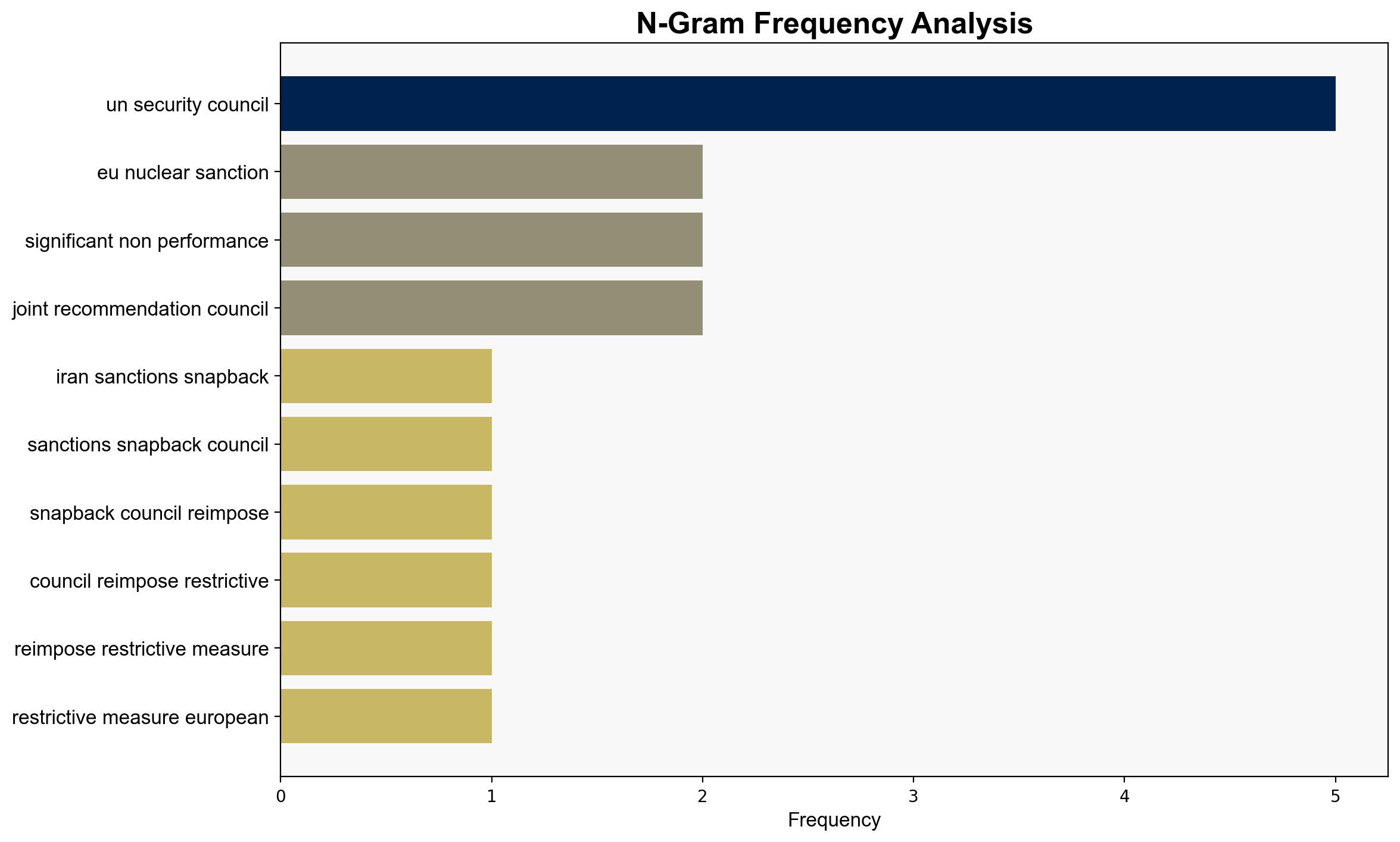Iran sanctions snapback Council reimposes restrictive measures – Globalsecurity.org
Published on: 2025-09-30
Intelligence Report: Iran sanctions snapback Council reimposes restrictive measures – Globalsecurity.org
1. BLUF (Bottom Line Up Front)
The European Union has reimposed sanctions on Iran due to perceived non-compliance with the Joint Comprehensive Plan of Action (JCPOA). The most supported hypothesis is that the EU’s actions are primarily driven by geopolitical strategy rather than immediate security concerns. Confidence level: Moderate. Recommended action: Monitor Iran’s response and prepare for potential diplomatic negotiations or escalations.
2. Competing Hypotheses
1. **Geopolitical Strategy Hypothesis**: The EU’s decision to reimpose sanctions is primarily a geopolitical maneuver to align with the United States and exert pressure on Iran to renegotiate the JCPOA terms.
2. **Security Concern Hypothesis**: The EU genuinely perceives a significant threat from Iran’s nuclear activities and is acting to mitigate this risk by reinstating sanctions.
Using the Analysis of Competing Hypotheses (ACH) 2.0, the geopolitical strategy hypothesis is better supported due to the timing of the sanctions and the involvement of France, Germany, and the UK, which suggests a coordinated effort to influence Iran’s strategic decisions.
3. Key Assumptions and Red Flags
– Assumptions: The EU believes that sanctions will effectively pressure Iran into compliance. There is an assumption that Iran’s nuclear activities pose a significant threat.
– Red Flags: Lack of concrete evidence of immediate nuclear threats from Iran. Potential cognitive bias in interpreting Iran’s compliance with the JCPOA.
– Missing Data: Detailed intelligence on Iran’s current nuclear capabilities and intentions.
4. Implications and Strategic Risks
– **Economic Impact**: Sanctions could further strain Iran’s economy, potentially leading to internal unrest.
– **Geopolitical Tensions**: Increased tensions between Iran and Western countries could escalate into broader regional conflicts.
– **Cybersecurity Threats**: Iran may retaliate with cyber operations against EU member states.
– **Diplomatic Relations**: Strained relations could hinder future negotiations and diplomatic resolutions.
5. Recommendations and Outlook
- Engage in diplomatic dialogue with Iran to clarify compliance issues and explore potential renegotiations of the JCPOA.
- Strengthen cybersecurity defenses in anticipation of potential Iranian cyber retaliation.
- Scenario Projections:
- Best Case: Iran agrees to renegotiate JCPOA terms, leading to eased tensions and lifted sanctions.
- Worst Case: Escalation into military conflict or significant cyberattacks on EU infrastructure.
- Most Likely: Prolonged diplomatic standoff with intermittent negotiations.
6. Key Individuals and Entities
– France, Germany, United Kingdom (as key EU actors in the decision)
– Iran’s central bank and major commercial banks (affected entities)
7. Thematic Tags
national security threats, cybersecurity, counter-terrorism, regional focus





